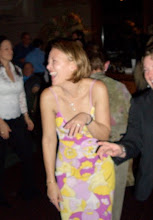This John Irving novel sat on our bookshelf for a couple of years before I finally got around to reading it. I'd loved A Prayer for Owen Meany, but wasn't all that crazy about The World According to Garp. I picked up A Widow for One Year only when I couldn't find the book I wanted to read. And I was very happy that I did.
I found A Widow to be much more akin to Owen Meany in that I really enjoyed the book. It's a very intricate plot that weaves through the lives of Ruth Cole and her family and friends over the course of more than 35 years. In typical Irving fashion, there is a ton of back story throughout, and, also typical, it can be a little depressing. In this novel he does a great job of character development, and on display is his meticulous attention to detail. His style of narrative fiction keeps the story moving very quickly, while giving the reader a thorough understanding of what motivates each of his characters.
The plot was interesting, if a bit meandering. The first section of the book takes place during the summer that Ted and Marion, four-year-old Ruth's parents, are going through a divorce. High school student Eddie O'Hare spends the summer as Ted's writing assistant, and the events of the summer define the rest of his life. The relationships between these four characters are deeply shaped by how the death of the Coles' two older sons several years prior continues to affect them both. We pick up in the novel more than 30 years later, when Ruth and Eddie get back in touch and begin a friendship. Ted's modus operandi has not changed; Marion has never returned to the fold. The rest of the book explores Ruth's historical inability to sustain healthy relationships, and its roots in that fateful summer.
As for recurring themes, a few will be familiar to readers of Irving's other books. These include disfunctional familial relationships, devastating consequences of promiscuity, Phillips Exeter Academy, and a freak accident. This book also includes the recurrence of women who'd been "a widow for one year," a phrase which makes an appearance in at least three distinct scenes.
I enjoyed the book, and would recommend it to anyone who doesn't loathe him as a writer; it's a bit too long, and perhaps too self-indulgent, to please the anti-Irving crowd. As for me, though, A Widow has renewed my appreciation of Irving. I think I'll try The Cider House Rules next.
Thursday, May 29, 2008
A Widow for One Year
Labels:
literature
Subscribe to:
Post Comments (Atom)


No comments:
Post a Comment